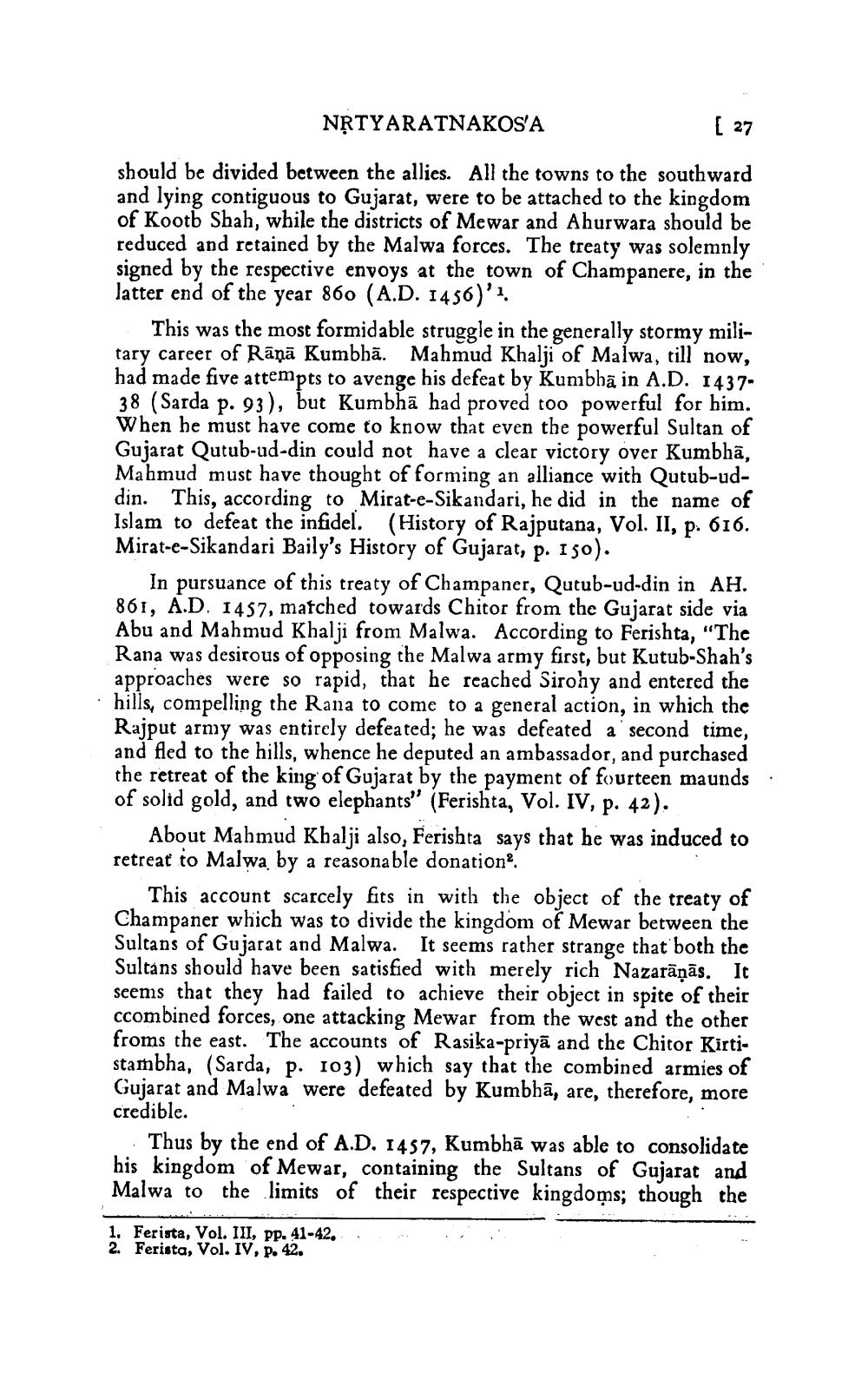________________
NRTYARATNAKOS'A
[ 27
should be divided between the allies. All the towns to the southward and lying contiguous to Gujarat, were to be attached to the kingdom of Kootb Shah, while the districts of Mewar and Ahurwara should be reduced and retained by the Malwa forces. The treaty was solemnly signed by the respective envoys at the town of Champanere, in the latter end of the year 860 (A.D. 1456)'1.
This was the most formidable struggle in the generally stormy military career of Rāņā Kumbhā. Mahmud Khalji of Malwa, till now, had made five attempts to avenge his defeat by Kumbha in A.D. 143738 (Sarda p. 93), but Kumbha had proved too powerful for him. When he must have come to know that even the powerful Sultan of Gujarat Qutub-ud-din could not have a clear victory over Kumbha, Mahmud must have thought of forming an alliance with Qutub-uddin. This, according to Mirat-e-Sikandari, he did in the name of Islam to defeat the infidel. (History of Rajputana, Vol. II, P. 616. Mirat-e-Sikandari Baily's History of Gujarat, p. 150).
In pursuance of this treaty of Champaner, Qutub-ud-din in AH. 861, A.D. 1457, matched towards Chitor from the Gujarat side via Abu and Mahmud Khalji from Malwa. According to Ferishta, "The Rana was desirous of opposing the Malwa army first, but Kutub-Shah's approaches were so rapid, that he reached Sirohy and entered the hills, compelling the Rana to come to a general action, in which the Rajput army was entirely defeated; he was defeated a second time, and fled to the hills, whence he deputed an ambassador, and purchased the retreat of the king of Gujarat by the payment of fourteen maunds of solid gold, and two elephants" (Ferishta, Vol. IV, p. 42).
About Mahmud Khalji also, Ferishta says that he was induced to retreat to Malwa by a reasonable donation2.
This account scarcely fits in with the object of the treaty of Champaner which was to divide the kingdom of Mewar between the Sultans of Gujarat and Malwa. It seems rather strange that both the Sultans should have been satisfied with merely rich Nazarānās. It seems that they had failed to achieve their object in spite of their ccombined forces, one attacking Mewar from the west and the other froms the east. The accounts of Rasika-priya and the Chitor Kirtistambha, (Sarda, p. 103) which say that the combined armies of Gujarat and Malwa were defeated by Kumbha, are, therefore, more
credible.
Thus by the end of A.D. 1457, Kumbha was able to consolidate his kingdom of Mewar, containing the Sultans of Gujarat and Malwa to the limits of their respective kingdoms; though the
1. Ferista, Vol. III, pp. 41-42.
2. Ferista, Vol. IV, p. 42.




